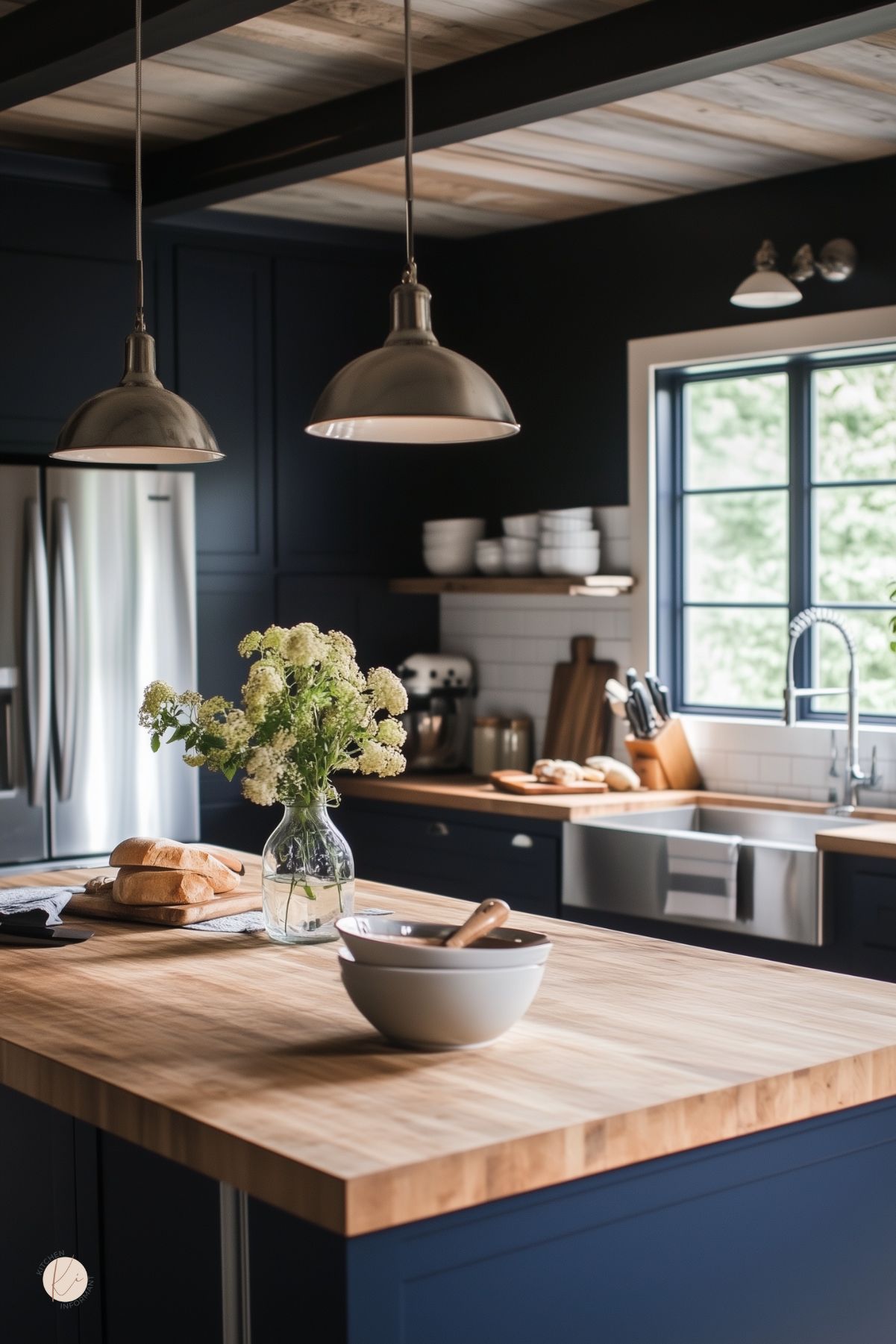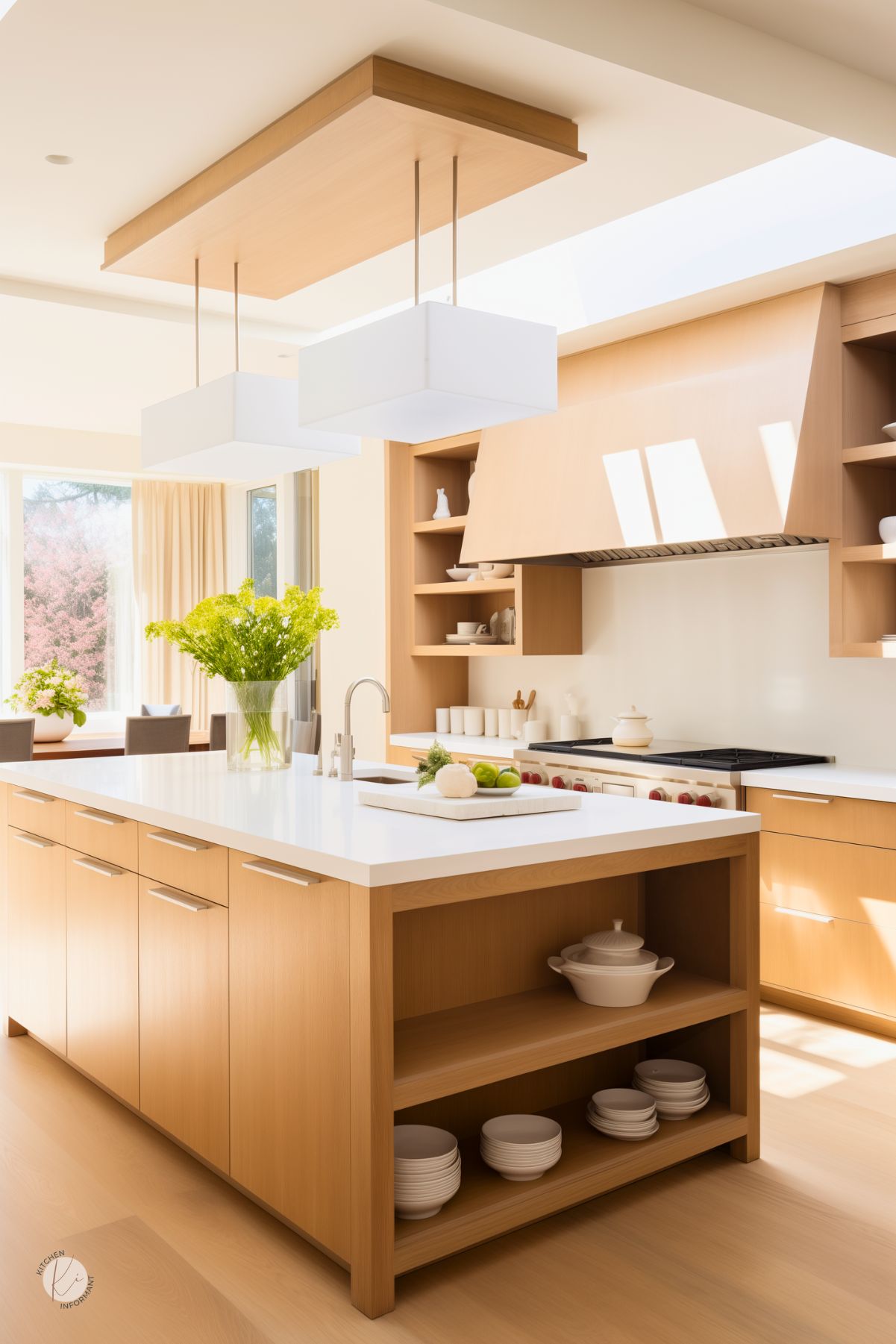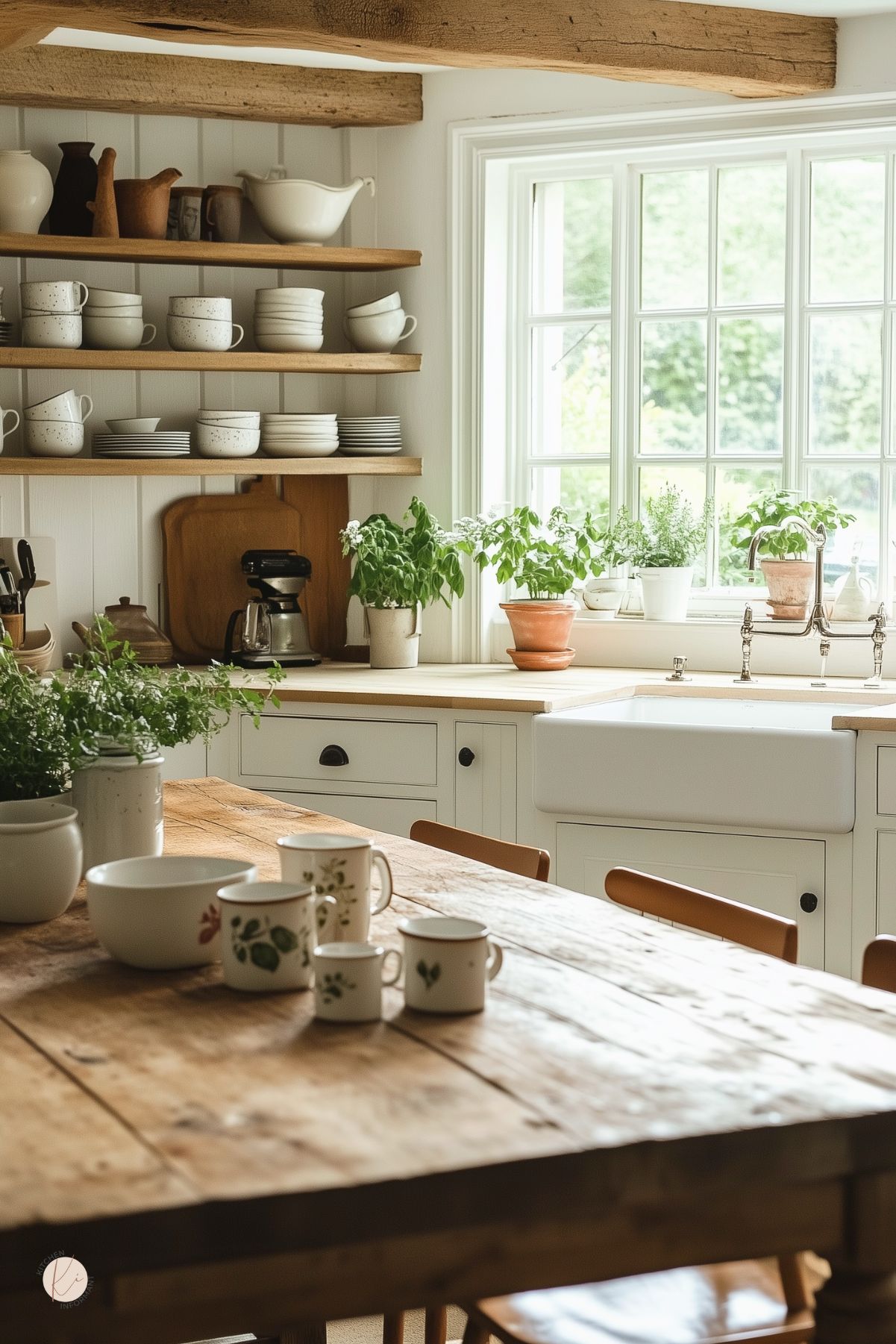Wooden Spoons vs. Metal Spoons: Which are Better? A Comprehensive Comparison
Wooden and metal spoons are two of the most commonly used utensils in the kitchen. They serve similar purposes, but each has its own unique properties that make it better suited for certain tasks.
For example, wooden spoons are ideal for stirring soups and sauces, while metal spoons are better for sautéing and frying.

One of the main differences between wooden and metal spoons is their material properties. Wooden spoons are made from natural hardwoods like beech, maple, or olive wood, while metal spoons are usually made from stainless steel or aluminum.
Wooden spoons have a natural texture that provides a soft touch, making them ideal for use with non-stick surfaces.
Metal spoons, on the other hand, provide strength and resistance to deformation, making them better suited for heavier tasks.
Key Takeaways:
- Wooden spoons are better for stirring soups and sauces, while metal spoons are better for sautéing and frying.
- Wooden spoons are made from natural hardwoods, while metal spoons are usually made from stainless steel or aluminum.
- Wooden spoons are ideal for use with non-stick surfaces, while metal spoons provide strength and resistance to deformation.
Material Properties
When it comes to wooden spoons vs. metal spoons, one of the main differences is the material properties.
Here we will discuss the durability of materials, heat conductivity, and maintenance and care for each type of spoon.
Durability of Materials
Wooden spoons are generally less durable than metal spoons. They are more prone to cracking, chipping, and warping over time, especially if they are exposed to water for extended periods.
However, wooden spoons are less likely to scratch or damage non-stick cookware.
Metal spoons, on the other hand, are much more durable than wooden spoons. They are less prone to damage and can last for many years with proper care.
However, metal spoons can scratch and damage non-stick cookware, which can be a concern for some cooks.
Heat Conductivity
Wooden spoons are poor conductors of heat, which can be an advantage or disadvantage depending on the cooking task. For example, wooden spoons are ideal for stirring sauces and soups because they won’t conduct heat and won’t scratch non-stick cookware.
However, wooden spoons are not ideal for tasks that require quick temperature changes, such as sautéing or searing.
Metal spoons are excellent conductors of heat, which makes them ideal for tasks that require quick temperature changes.
For example, metal spoons are ideal for sautéing or searing. However, metal spoons can conduct heat too well and can become too hot to handle.
Maintenance and Care
Wooden spoons require more maintenance and care than metal spoons. They should be washed by hand and dried immediately to prevent warping or cracking.
Wooden spoons should also be oiled periodically to prevent drying and cracking.
Metal spoons are much easier to maintain than wooden spoons. They can be washed in the dishwasher and do not require oiling.
However, metal spoons can become discolored over time and may require polishing to maintain their appearance.
Health and Safety

Wooden and metal spoons differ in terms of health and safety concerns. In this section, we will discuss the various aspects of health and safety to consider when choosing between wooden and metal spoons.
Chemical Leaching Concerns
One of the primary concerns with metal spoons is the potential for chemical leaching. Stainless steel and aluminum spoons are generally safe, but they can leach small amounts of metal into acidic or salty foods.
This can be harmful to health if the metal concentration in the food exceeds the recommended daily intake.
On the other hand, wooden spoons are free from chemical leaching concerns. However, they can absorb flavors and odors from the food, which can be a problem if you use the same spoon for different types of dishes.
Allergenic Reactions
Another health concern to consider is allergenic reactions. Some people may be allergic to certain types of wood, such as olive or beechwood, which are commonly used for making wooden spoons.
This can cause an allergic reaction, such as skin irritation or respiratory problems.
Metal spoons, on the other hand, are less likely to cause an allergic reaction. However, some people may have a metal allergy, which can cause skin irritation or other symptoms.
Food Safety Standards
When it comes to food safety, both wooden and metal spoons are safe to use. However, wooden spoons require more care and maintenance to prevent bacterial growth.
Wooden spoons should be washed with hot soapy water after each use and dried thoroughly to prevent moisture buildup.
Metal spoons are easier to clean and sanitize, and they are dishwasher safe. However, they can scratch non-stick cookware, which can be a problem if you use non-stick pans.
Overall, both wooden and metal spoons have their advantages and disadvantages in terms of health and safety concerns.
It is important to consider your personal preferences and needs when choosing between the two.
Environmental Impact

Wooden and metal spoons have different environmental impacts, and it is important to consider these factors when choosing between the two.
Sustainability of Wood
Wooden spoons are generally considered to be more sustainable than metal spoons. This is because wood is a renewable resource, whereas metal is not.
Additionally, wooden spoons are often made from sustainably sourced wood, such as bamboo or maple, which further reduces their environmental impact.
Recyclability of Metals
Metal spoons are generally more recyclable than wooden spoons. This is because metal can be melted down and reused, whereas wood cannot.
However, it is important to note that not all metal spoons are created equal.
Stainless steel spoons are more recyclable than aluminum spoons because they are more durable and can be recycled indefinitely.
Carbon Footprint Comparison
The carbon footprint of wooden spoons and metal spoons is difficult to compare because it depends on a variety of factors, such as the source of the wood or metal and the manufacturing process.
However, it is generally believed that wooden spoons have a lower carbon footprint than metal spoons because they require less energy to produce.
Overall, when considering the environmental impact of wooden spoons vs. metal spoons, it is important to weigh the pros and cons of each.
While wooden spoons are generally considered to be more sustainable, metal spoons are more recyclable.
Additionally, the carbon footprint of each type of spoon depends on a variety of factors.
Culinary Applications

Wooden and metal spoons have different culinary applications.
Here are some of the key differences:
Taste and Aesthetic Influence
Wooden spoons do not react with acidic foods, which means they won’t change the color or flavor of the food. Metal spoons, on the other hand, can react with acidic foods and impart an off-taste.
Wooden spoons also have a more natural and rustic look, which can add to the aesthetic appeal of a dish. Metal spoons, on the other hand, have a sleek and modern look.
Versatility in Cooking
Wooden spoons are favored for their gentle touch on delicate surfaces, making them suitable for stirring, mixing, and folding.
Metal spoons, being more robust, are suitable for a wider variety of tasks, including serving, scraping, and more demanding cooking applications.
Wooden spoons are also good for preventing scratches on non-stick cookware, while metal spoons can damage the non-stick coating.
Specialized Utensils
There are certain specialized utensils that are only available in wood, such as a wooden spatula for flipping pancakes or a wooden spoon for serving rice.
Metal utensils, on the other hand, have a wider range of specialized utensils, such as a slotted spoon for draining liquids or a whisk for beating eggs.
Overall, both wooden and metal spoons have their advantages and disadvantages, and the choice between them depends on personal preference and the specific culinary application.
Economic Considerations

When choosing between wooden and metal spoons, economic considerations can play a significant role.
This section will examine the cost analysis, availability and accessibility, and longevity and replacement costs of wooden and metal spoons.
Cost Analysis
In terms of cost, wooden spoons are generally less expensive than metal spoons. While the price of wooden spoons can vary depending on the type of wood used, they are generally more affordable than metal spoons made from high-quality materials such as stainless steel.
However, it is worth noting that wooden spoons may need to be replaced more frequently than metal spoons, which could increase their overall cost in the long run.
Availability and Accessibility
Wooden spoons are widely available and accessible, as they are sold in most kitchenware stores and online retailers.
They are also relatively easy to find in grocery stores and supermarkets. Metal spoons, on the other hand, may be more difficult to find in stores that do not specialize in kitchenware.
However, metal spoons are widely available online and can be purchased from a variety of retailers.
Longevity and Replacement Costs
When it comes to longevity, metal spoons generally last longer than wooden spoons. Metal spoons are more durable and resistant to wear and tear, making them a good investment for those who use spoons frequently.
Wooden spoons, on the other hand, may need to be replaced more often due to their tendency to crack, split, or warp over time.
While wooden spoons are generally less expensive than metal spoons, their replacement costs can add up over time.
When it comes to economic considerations, wooden and metal spoons both have their advantages and disadvantages.
While wooden spoons are generally less expensive and widely accessible, they may need to be replaced more frequently than metal spoons. Metal spoons, on the other hand, are generally more durable and long-lasting, but may be more expensive and less accessible in some stores.
Ultimately, the choice between wooden and metal spoons will depend on individual preferences and needs.
User Experience
Wooden and metal spoons differ in their user experience.
This section will explore the differences in ergonomics and comfort, aesthetic appeal, and cultural significance.
Ergonomics and Comfort
Wooden spoons, due to their natural texture, provide a soft touch and are ideal for non-stick surfaces. They also have a unique ability to mold into the user’s hand, providing a comfortable grip.
On the other hand, metal spoons are usually made of stainless steel or aluminum, which provides strength and resistance to deformation.
However, holding metal spoons for long periods can be uncomfortable due to their cold texture.
Aesthetic Appeal
Wooden spoons have a rustic and traditional look, which can add warmth and character to a kitchen. They come in various shapes and sizes and are often handcrafted, which adds to their charm.
Metal spoons, on the other hand, have a modern and sleek appearance. They are often used in professional kitchens due to their durability and ease of cleaning.
Cultural Significance
Wooden spoons have cultural significance in many countries.
For example, in Italy, the “cucchiaio di legno” or wooden spoon is a symbol of family tradition and is often passed down from generation to generation.
In Japan, the “shamoji” or wooden rice paddle is used in traditional ceremonies and is considered a symbol of hospitality.
Metal spoons, on the other hand, do not have the same cultural significance.
Conclusion

In conclusion, both wooden spoons and metal spoons have their benefits and drawbacks. Wooden spoons are great for delicate tasks such as stirring sauces, while metal spoons are better for heavy-duty tasks such as stirring thick batters.
Wooden spoons are also better for use with non-stick cookware, as they are less likely to scratch the surface. They are also more comfortable to use for extended periods of time and are less likely to conduct heat, making them safer to use.
On the other hand, metal spoons are more durable and long-lasting than wooden spoons. They are also easier to clean and sanitize, making them more hygienic. Metal spoons are also better for cooking at high temperatures, as they are less likely to warp or melt.
Ultimately, the choice between wooden spoons and metal spoons comes down to personal preference and intended use. Both have their unique advantages, and the decision should be based on the specific needs of the individual.
Frequently Asked Questions

What are the advantages of using wooden spoons for cooking?
Wooden spoons are a popular choice for cooking because they are gentle on cookware and do not scratch non-stick surfaces. They are also heat-resistant, so they won’t get hot and burn your hands while you’re cooking. In addition, wooden spoons are less likely to transfer heat to your food, which can help prevent overcooking. They are also more comfortable to hold than metal spoons, as they tend to mold into your hand, making them easier to grip.
Are wooden spoons or metal spoons more durable?
Wooden spoons can last a long time if they are well-cared for. They are less likely to bend or break than metal spoons, and they won’t rust or tarnish over time. However, wooden spoons can crack or split if they are exposed to extreme temperatures or left to soak in water for too long. Metal spoons, on the other hand, are more durable and can withstand more abuse than wooden spoons. They are less likely to crack or split, and they can be washed in the dishwasher without any problems.
Are wooden spoons more eco-friendly than metal spoons?
Wooden spoons are generally considered to be more eco-friendly than metal spoons. They are made from a renewable resource, and they are biodegradable, which means they won’t sit in a landfill for hundreds of years. In addition, wooden spoons are often produced using sustainable practices, such as harvesting wood from responsibly managed forests. Metal spoons, on the other hand, are made from non-renewable resources, and the production process can be environmentally damaging. However, it’s worth noting that metal spoons can be recycled, which can help reduce their environmental impact.





